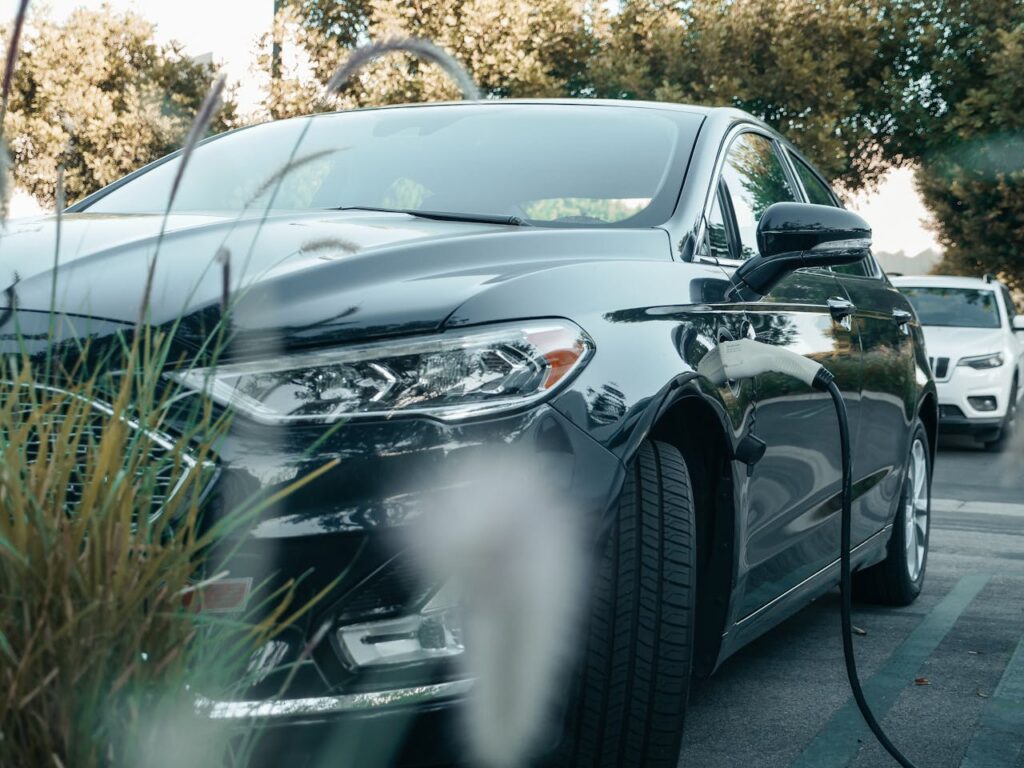Are All EV Batteries Lithium?
Most EV batteries used are lithium. However, some electric car batteries may use nickel-metal hydride batteries and lead-acid batteries.
New technology, including solid state batteries, are also being developed in battery technology for use in electric vehicles.
The Types Of EV Batteries
Lithium Ion
The lithium-ion battery is the star player in the EV world. Known for its excellent energy density and ability to hold a charge over extended use, it powers most of the EVs we see on the road today. Li-ion batteries offer a balance of performance, weight, and durability, which makes them ideal for electric vehicles.
Within the Li-ion family, there are some exciting variations, including lithium iron phosphate (LFP) batteries. These LFP batteries are gaining popularity due to their increased stability and ability to perform well under high-temperature conditions, even if they offer a slightly lower energy density. Plus, LFPs are known to handle charge cycling like a pro, making them a durable choice for long-haul use.
Nickel-Metal Hydride
Nickel-metal hydride batteries may sound old-school, but they’re still hanging around in hybrid vehicles and some early EV models. NiMH batteries are reliable, offer decent energy density, and handle high temperatures better than most.
However, they tend to have a shorter lifespan than lithium-ion batteries, which impacts how effectively they charge and discharge over time.
Lead-Acid
You’ve probably seen lead-acid batteries under the hood of traditional cars, where they’re mainly used to power things like lights, radios, and that trusty car horn. In EVs, lead-acid batteries are the underdog, found only in limited cases due to their low energy density and hefty weight.
They don’t perform well under high demand and have relatively short lifespans. However, they’re cheap and reliable for applications where energy density isn’t a primary concern. While they’re not ideal for EVs, you may still find them lurking in some electric golf carts or scooters.
Solid State
Solid-state batteries are the shiny new tech on the block. Instead of a liquid electrolyte, they use a solid one, which provides greater stability, especially under high-temperature and high-stress conditions. They also promise a much higher energy density, meaning EVs could eventually go farther on a single charge without needing to bulk up the battery pack.
In other words, solid-state batteries could be the answer to everyone’s dream of a lightweight, supercharged EV that doesn’t take forever to charge up. However, these batteries are still in development and come with their own set of challenges around manufacturing costs and sourcing raw materials.
We Collect and Recycle EV Batteries
As EV adoption rises, so does the need for responsible battery disposal and recycling. EV batteries go through extensive charge and discharge cycles, and even the best ones eventually reach the end of their useful lives. That’s where we step in! We’re passionate about collecting and recycling EV batteries to ensure that valuable raw materials don’t go to waste and to prevent harmful environmental impacts from improper disposal.


